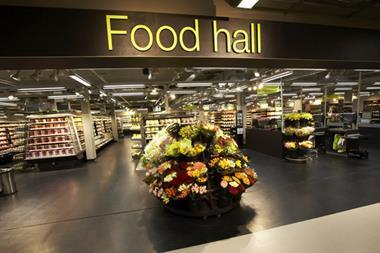No-smoking signs are going up in pubs, offices and shops across the country. Adverts are appearing on TV, in newspapers and at bus and train stations. With just two weeks to go before the ban on smoking in public places comes into force in England, businesses are bracing themselves for impact. So what can they expect - and, more to the point, are they ready?
The ban, which goes live on
1 July, applies to virtually all enclosed and substantially enclosed public places and workplaces. The rest of the UK and the Republic of Ireland, where the ban is already in force, have provided plenty of clues as to the likely impact.
Pubs were in the front line with wet sales reported to be about 10% down in Scotland. However, they've mitigated the fall-off by shifting their attention to food.
Wholesalers, too, have made moves to offset any fall in their tobacco sales. Some businesses have even benefited. "Companies such as Booker actually did better out of the smoking ban in Scotland as increased food sales offset the loss of tobacco sales," says Tom Gadsby, analyst at SG Securities.
Iain Watkins, UK trade communications manager at Imperial Tobacco, agrees there has been a shift in emphasis: "What we've seen in Scotland is not so much a dip in total smoking but a shift in trade channels. We saw sales in convenience stores up 20%, forecourts up 4%, off licences up 16 % and the multiples up 11%.
"There are, of course, some minuses. The on-trade tobacco sales dropped 39% and vending sales went down 31%. We used to say the tobacco market was resilient, but actually adult smokers are resilient. The ban is nothing for the average retailer to be daunted by."
However, most are predicting static tobacco sales at best. "We don't sell much tobacco to clubs and pubs. Our independent retailer customers have a steady flow of customers and that is regular business," says Yousaf Kaiser, head of buying at cash & carry business Bestway.
Many CTNs will struggle to adapt, warns Clive Black, head of research at Shore Capital. "CTNs and convenience stores have more to worry about as tobacco is such a driver of footfall. There have already been moves into grocery for these stores. The smoking ban will accentuate this strategy."
The smoking ban should be seen as an opportunity to innovate, says Helena Spicer, leisure analyst at Mintel.
Some CTNs are trying to do just that. Birmingham-based CTN operator Rippleglen is trying to diversify beyond traditional high street locations, where stores tend to be more dependent on tobacco sales, into new areas such as hospitals and bus and train stations.
Others are developing their food offers. Nisa-Today's has launched a 35-line own-label frozen snacks range called 'Let's eat in' to capitalise on an expected increase in entertaining at home, for instance.
Suppliers are expected to develop new snacks or easy-to-cook products for pubs too small to compensate for falling drinks sales with a full meal service. "Brakes is doing a lot to provide frozen food that can be cooked in a small area," says Spicer.
Meanwhile, the big retailers are focusing their attention on the raft of smokers expected to use the ban as an opportunity to quit. Tesco expects to see an increase in people turning to products such as nicotine patches for help. As well as talking to its 240,000 staff about what changes the smoking ban will mean, it will be offering shoppers advice on how to give up.
"Customers can have a private consultation with a stop-smoking adviser and, after the initial consultation, can visit them as many times as they wish for further support," says Penny Beck, superintendent pharmacist at Tesco. "The advisors can provide help on planning how to give up and information on the nicotine replacement products available."
Before businesses can think about how to capitalise on the ban, however, they need to make sure they comply. That may be easier than it sounds (see box), for many smaller businesses in particular.
The law stipulates, for instance, that no-smoking signs will have to be displayed in all public premises and vehicles.
"You are committing an offence if you are not displaying the correct signage," points out Shane Brennan, public affairs manager at the ACS. "Some retailers will already have no-smoking signs and think these are okay. But you have to get correct signs."
Businesses that haven't yet thought about the wider ramifications of the ban will need to get their skates on.devil in the detail
Though many grocery businesses are aware of the ban, only a third are fully prepared, according to law firm Eversheds. The other two-thirds are still struggling to get their heads around the fact that it's not just about compliance - a whole raft of peripheral factors need to be taken into consideration.
Eversheds is concerned staff in many companies have not received adequate training to deal with customers or suppliers who may flout the laws.
"People are aware the smoking ban is coming into force but they haven't given enough thought to company vehicles, disciplinary policies or training," says Naeema Choudry, partner in the firm's human resources group.
The area most likely to cause confusion is company vehicles, especially if they are used for personal and commercial use. "If you are giving a client a lift home from a dinner, that counts as company use," she says.
"To avoid prosecution you need to be able to show you have done everything you can to prevent in-vehicle smoking - smoke alarms in cars may be going too far, but perhaps surprise checks are an option. Enforcement officers will be checking."
A properly thought out smoking policy can help show due diligence in the event of a company being prosecuted or in disputes with staff, she says. "If you can show it has been properly prepared and staff understand it, you will be in a better position."


















No comments yet